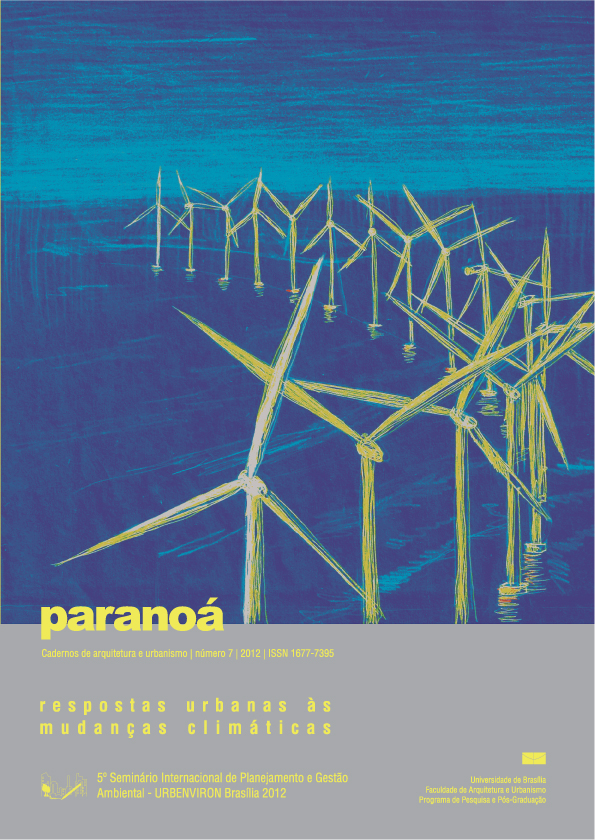Climate change: how to fight destructive effects in urban areas - concepts, planning approaches and measures in Germany
DOI:
https://doi.org/10.18830/issn.1679-0944.n7.2012.12308Keywords:
Climate change, Prevention of climate gases (CO2 ), Planning approaches, Remote sensing and GISAbstract
General Challenges caused by climate change are taken for serious both by federal and subordinated government officials in Germany. On the one hand energy supply is being shifted away from traditional production towards renewable sources. On the other hand development strategies aiming at prevention of CO2 and at adaption of urban settlements to worse climate conditions in the future are being transferred to practical measures on the level of regions and municipalities. Some selected examples of the more important measures and how they can be applied, although there is strong resistance against innovations, are described in this paper. The examples are related to local sources of renewable energy, to combined environmental and ordinary land use planning, improvement of carbon storage, reduction of surface sealing and improvement of urban green. Remote sensing and GIS provide the most important tools for implementation of planning concepts.
Downloads
Downloads
Published
How to Cite
Issue
Section
License
Autores que publicam nesta revista concordam com os seguintes termos:
- Autores mantém os direitos autorais e concedem à revista o direito de primeira publicação, com o trabalho simultaneamente licenciado sob a Licença Creative Commons Attribution que permite o compartilhamento do trabalho com reconhecimento da autoria e publicação inicial nesta revista. http://creativecommons.org/licenses/by/4.0
- Autores têm autorização para assumir contratos adicionais separadamente, para distribuição não-exclusiva da versão do trabalho publicada nesta revista (ex.: publicar em repositório institucional ou como capítulo de livro), com reconhecimento de autoria e publicação inicial nesta revista.
- Autores têm permissão e são estimulados a publicar e distribuir seu trabalho online (ex.: em repositórios institucionais ou na sua página pessoal) a qualquer ponto antes ou durante o processo editorial, já que isso pode gerar alterações produtivas, bem como aumentar o impacto e a citação do trabalho publicado (Veja O Efeito do Acesso Livre).















